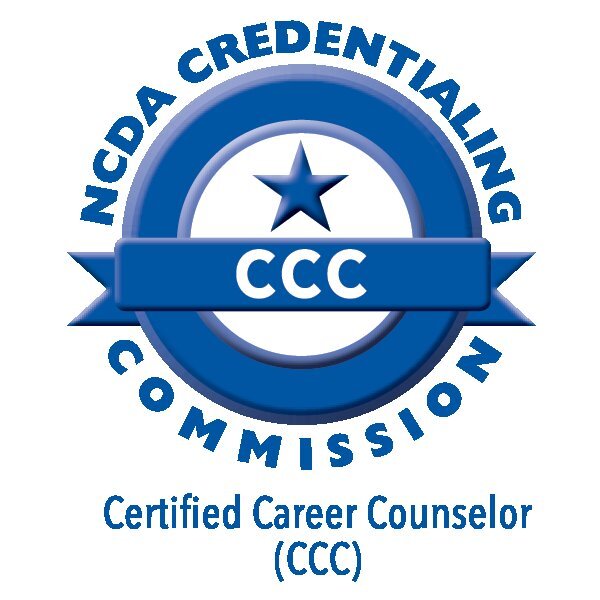I’m a Certified Career Counselor!
I’m excited to announce that I’ve received my approval as a Certified Career Counselor (CCC)! In this post I’ll explain what that means.
What is a Certified Career Counselor?
According to the National Career Development Association, the Certified Career Counselor credential “[…] is a recognition of two important factors in training and experience including both counseling and a specialization in career development, theory and practice.” In essence it recognizes that someone is specialized and trained in combining counseling and career.
During the first few years of my practice, the NCDA was actively reworking the credentialing process and certificate structure. Once the different levels were defined and the process laid out, I decided to apply.
Requirements
In order to become a Certified Career Counselor, one has to meet these requirements:
Graduate from an accredited graduate counseling program. My Master’s in Counseling from Portland State University meets those requirements. Check!
At least 600 hours of clinical experience doing career counseling, while being supervised by a career counselor. My 3000+ hours of clinical experience more than meet that requirement. I had my supervisor for licensure and my career counseling mentor attest to this. Check!
Complete, and pass, the competency assessment. This involved about 5 or 6 timed case studies where I was presented with a variety of client profiles and scenarios, and was asked to document how I might handle different aspects of the cases, from theory, assessment, ethical, and multicultural perspectives. I completed this part successfully. Check!
So… What’s different?
Well, I’m still myself. This credential doesn’t give me any new rights or abilities. But it does recognize my competence in the theory and practice of career counseling, and demonstrates that to clients and colleagues.
Read more about the CCC Core Competencies
Here are the core competencies for a Certified Career Counselor, in detail, from the NCDA:
A core understanding and appropriate application of theory.
An understanding and application of ethical counseling practice.
The ability to identify and understand familial and cultural influences as they relate to clients' careers. Supporting and challenging clients to examine life-work roles within a larger context including culture, the balance of work, leisure, family, and community in their careers.
Expertise in evaluating and selecting valid and reliable instruments appropriate to the client's gender, sexual orientation, race, ethnicity, and physical and mental capacities; administer, score, and report findings from career assessment instruments appropriately.
Demonstrating knowledge of education, training, and employment trends; labor market information and resources that provide information about job tasks, functions, salaries, requirements and future outlooks related to broad occupational fields and individual occupations.
Career Development Theory: Theory base and knowledge considered essential for professionals engaging in career counseling and development.
Individual and Group Counseling Skills: Individual and group counseling competencies considered essential for effective career counseling.
Individual/Group Assessment: Individual/group assessment skills considered essential for professionals engaging in career counseling.
Information/Resources: Information/resource base and knowledge essential for professionals engaging in career counseling.
Program Promotion, Management and Implementation: Skills necessary to develop, plan, implement, and manage comprehensive career development programs in a variety of settings.
Coaching, Consultation, and Performance Improvement: Knowledge and skills considered essential in enabling individuals and organizations to impact effectively upon the career counseling and development process.
Diverse Populations: Knowledge and skills considered essential in providing career counseling and development processes to diverse populations
Supervision: Knowledge and skills considered essential in critically evaluating counselor performance, maintaining and improving professional skills, and seeking assistance for others when needed in career counseling.
Ethical/Legal Issues: Information base and knowledge essential for the ethical and legal practice of career counseling.
Research/Evaluation: Knowledge and skills considered essential in understanding and conducting research and evaluation in career counseling and development.
Technology: Knowledge and skills considered essential in using technology to assist individuals with career planning
